Detroit: Rock and Roll, Cars and Reverend Guitars
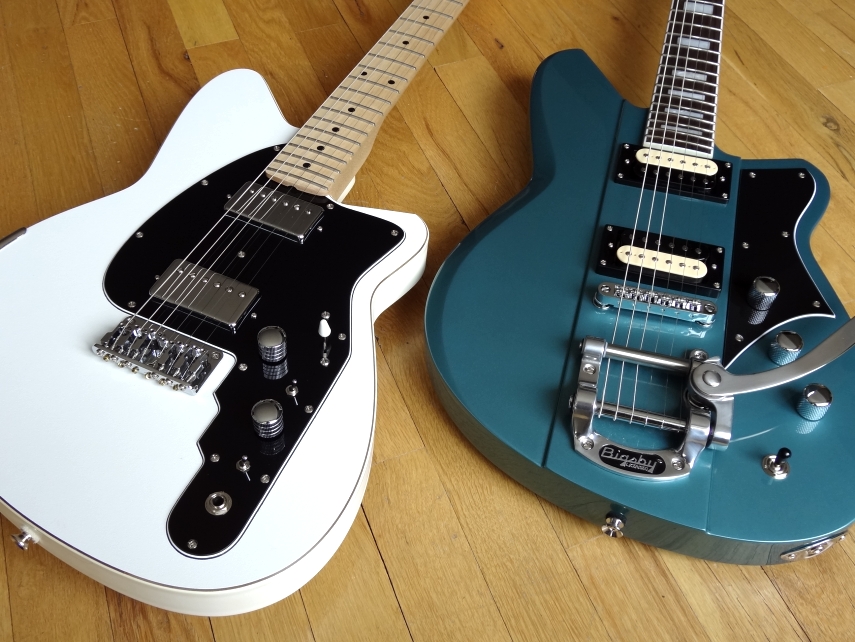
When music aficionados speak of Detroit, they tend to go on and on about the slew of rock bands and R&B groups to come out of the area.
And why not? When you consider the sheer number of rock legends and near-legends from the area, it's easy to see how one could spend hours discussing the Stooges, the MC5, Alice Cooper, The Frost, Ted Nugent, Bob Seger, Kid Rock, The White Stripes, etc.
And we haven't even touched on Motown, nor the countless great Detroit bands that never hit the big time.
Yes, the Motor City is a place of legend. It's where America got its wheels and learned to drive. It's probably no coincidence that music from Detroit is driving, powerful and moves like nothing else.
From this garage of innovation came Joe Naylor, the man behind Reverend Guitars. Reverend, as its environs would practically guarantee, has become one of the country's preeminent guitar and bass manufacturers, evoking the same no-nonsense approach to style, function and performance that the Big Three brought to the muscle car era.
Naylor got his start in the guitar world when he was 19. He bought his first electric guitar, and in his by-then typical "I can make this better" manner, dismantled the thing on the kitchen table. And that figurative light bulb over his head lit up. "When I took apart that first guitar," Naylor says, "I knew instantly that I found my calling."
Next thing you know, Naylor was repairing his friends' guitars (and playing in bands), while pursuing his degree in industrial design at Western Michigan University in Kalamazoo. After college, he relocated to Arizona to attend the Roberto-Venn School of Luthiery, where he spent four months learning the ins, outs and insides of electric and acoustic guitar making, pickup design and more.
Get The Pick Newsletter
All the latest guitar news, interviews, lessons, reviews, deals and more, direct to your inbox!
Upon returning to Kalamazoo, Naylor set up shop in his basement and spent the next five years immersed in guitar building and repair. It’s here that Naylor’s first guitar designs were born. “They were mostly single-cutaways, much like the current Reverend Charger body style,” Naylor says. “I designed a lot of semi-hollow and chambered guitars and made them out of every conceivable material, like plastic, foam, metal, phenolic and wood. I was infatuated with body flexibility and resonance and how it affected tone. Those early experiments taught me a lot, and I apply the lessons to everything I design today.”
Eventually he moved back to the Detroit area (where Naylor and his wife were born and raised) and opened up Joe's Guitar Exchange & Repair. "The shop experience was invaluable, easily as important as going to luthiery school," Naylor says. "We specialized in vintage/used gear and repair, so every type of guitar came through the shop. I saw what worked and what broke, and what was important to working musicians. I learned that simple is usually better."
In 1994 the shop became Naylor Amps. Boutique amps are common now, but Naylor was ahead of its time. "I sold it and started Reverend in the garage behind the building, figuring I'd have better luck with guitars,” Naylor says.
Reverend officially launched in 1996, the name coming from a magazine article about blues guitarist Reverend Gary Davis. “I saw the word ‘Reverend’ on that page, and that was it!”
Once established, the nascent startup began to attract guitarists from far and near. Early Reverend users included Carl Verheyen, the Red Elvises, Noel Roy (Lorrie Morgan), Brad Houser, Dave Pomeroy, Will Ray, Rick Vito (who has a Reverend signature model), Ron Asheton of the Stooges (See my last blog post) and Kid Rock, who was brought on board by his original lead guitarist, Kenny Olson.
“He liked the unique, automotive-inspired look and the Detroit connection,” Naylor says of Mr. Rock’s support of his guitars. “Then we ran that Guitar World ad with him flipping the bird. People went nuts — they either loved it or hated it, but suddenly everyone knew who Reverend was. He also posed with a Reverend on the cover of his best-of album, The History of Rock. He was real good to us and definitely helped put us on the map."
One guy who did love that irreverent ad was country guitar legend Pete Anderson.
"Pete approached me out of the blue at a NAMM show and was raving about how much he liked the ad," Naylor says. "He grew up in East Detroit (only two blocks from my old guitar shop) and totally got it." That meeting opened the door for a working relationship with Anderson, whose name now graces several Reverend signature guitars.
Of course, you don’t have to be from Detroit to appreciate Reverend’s guitars and basses. The clean designs and blue-collar functionality have attracted musicians from all over the world. Today you’ll find Reverends in the hands of everybody from Bob Balch of Fu Manchu to Billy Corgan to Meshell Ndegeocello, and in the hands of a growing army of players of all types who can dig the Motor City vibe.
Marsh Gooch is a graphic designer and writer from Seattle who has been playing guitar and bass "for an awfully long time." Currently the bassist in King County Queens, he's held marketing positions with ESP Guitars, Ampeg, Line 6 and Reverend Guitars. He rocks to all kinds of music, especially classic and punk rock, and actually prefers the Damned over the Beatles. At least half the time. He can be reached via his web site, marshallgooch.com.
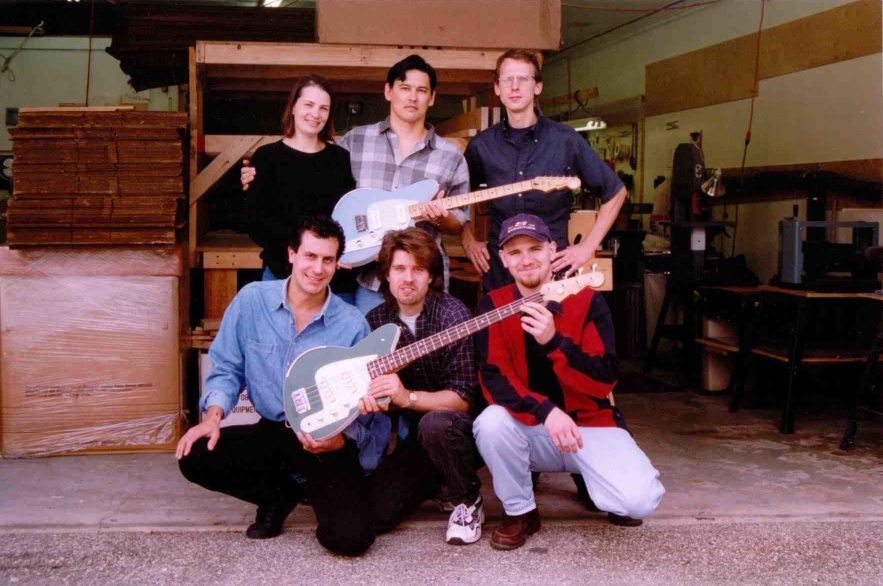
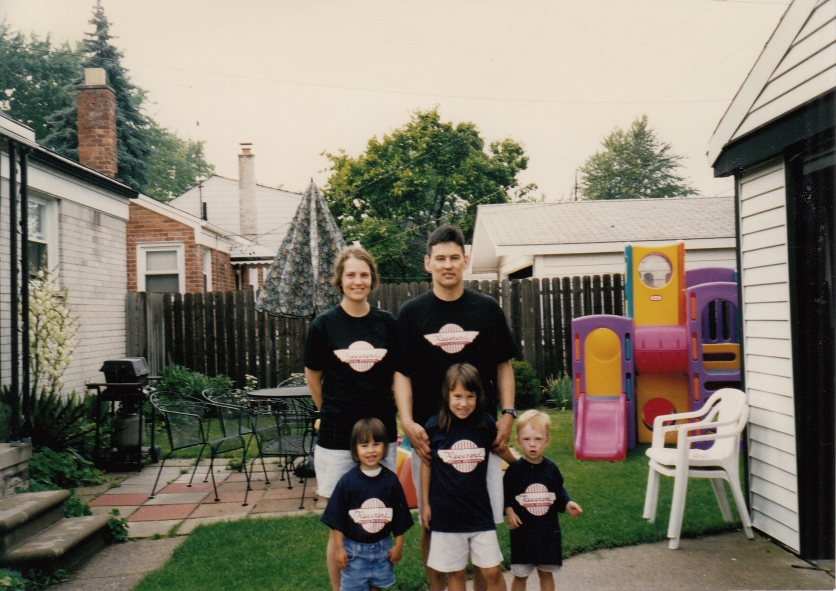
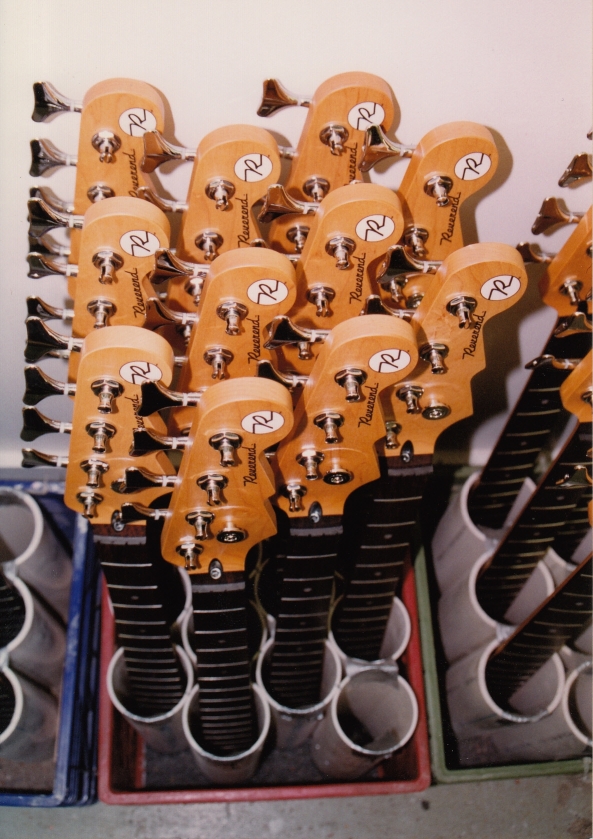
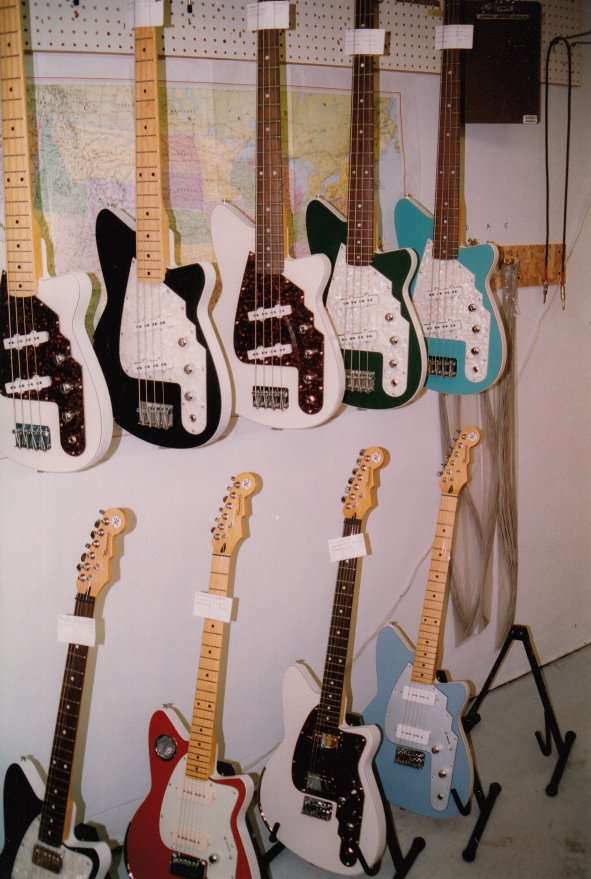
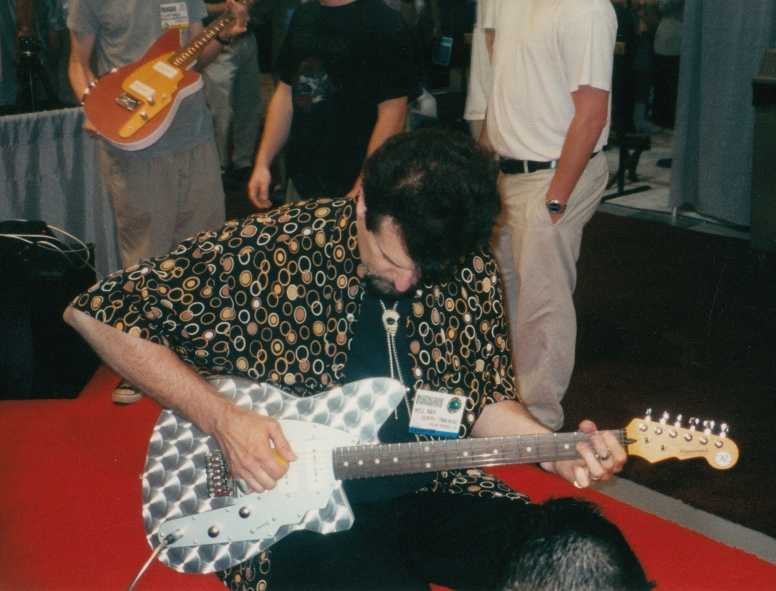
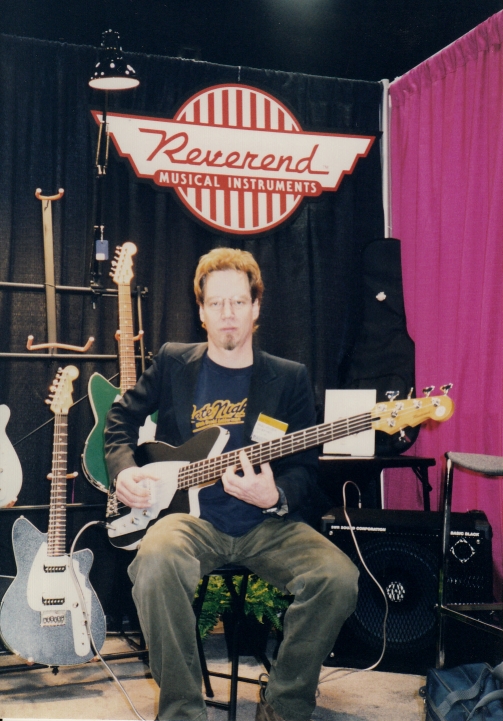
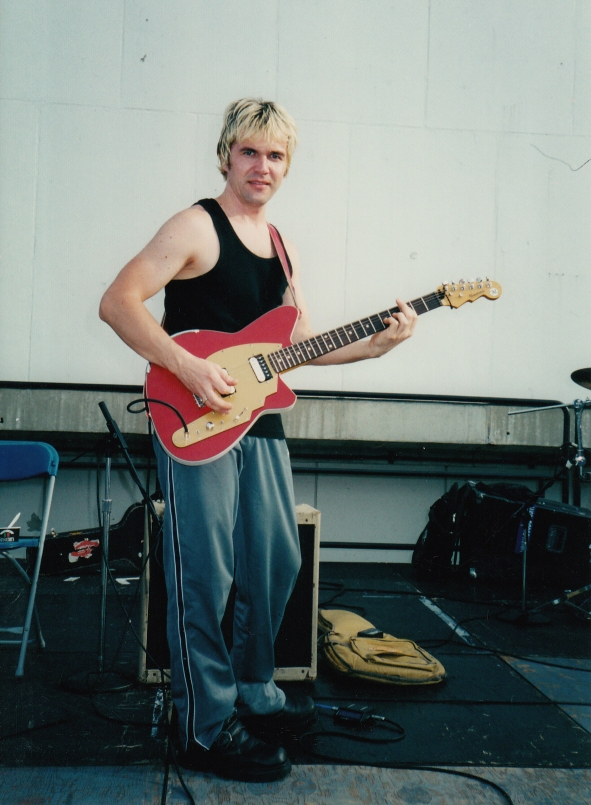
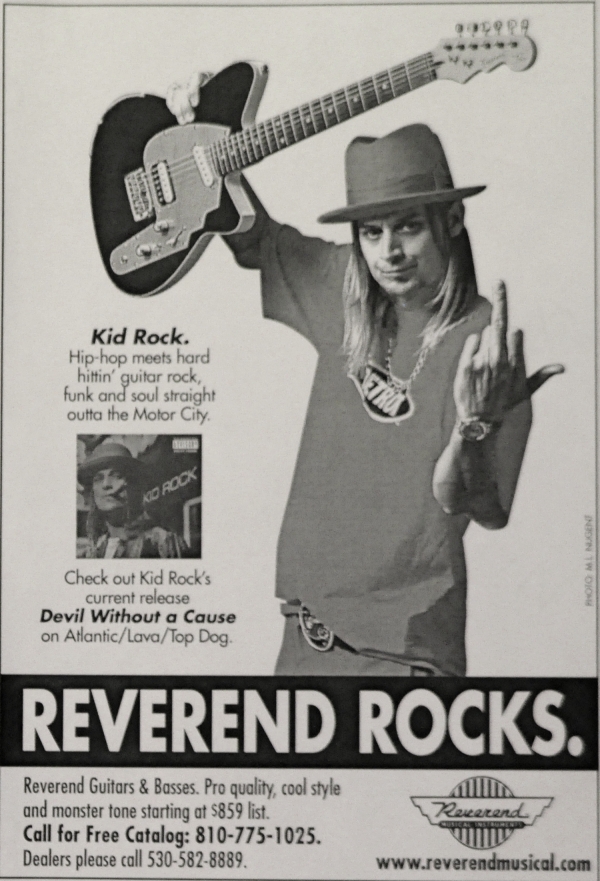
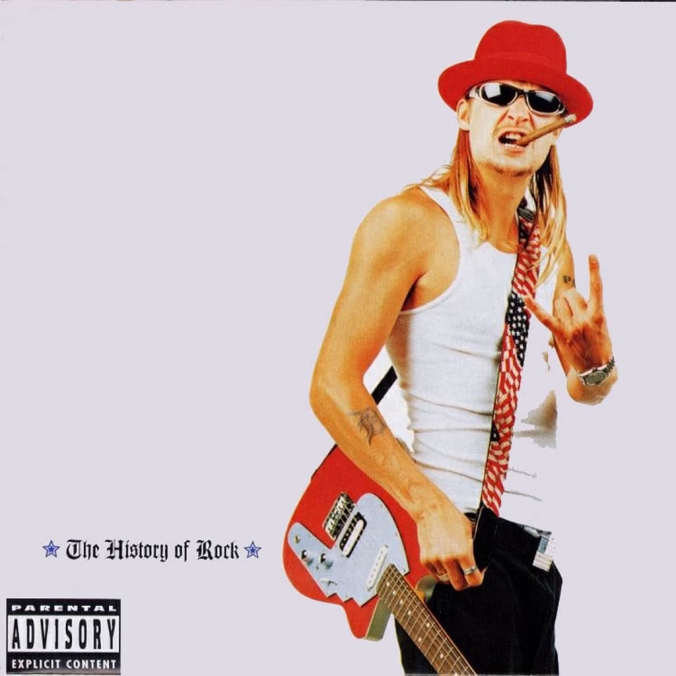
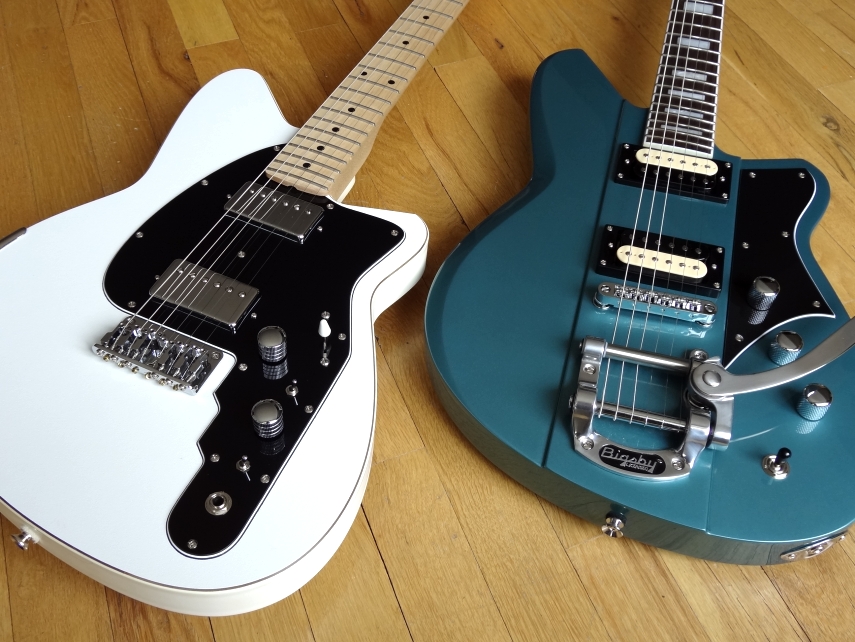
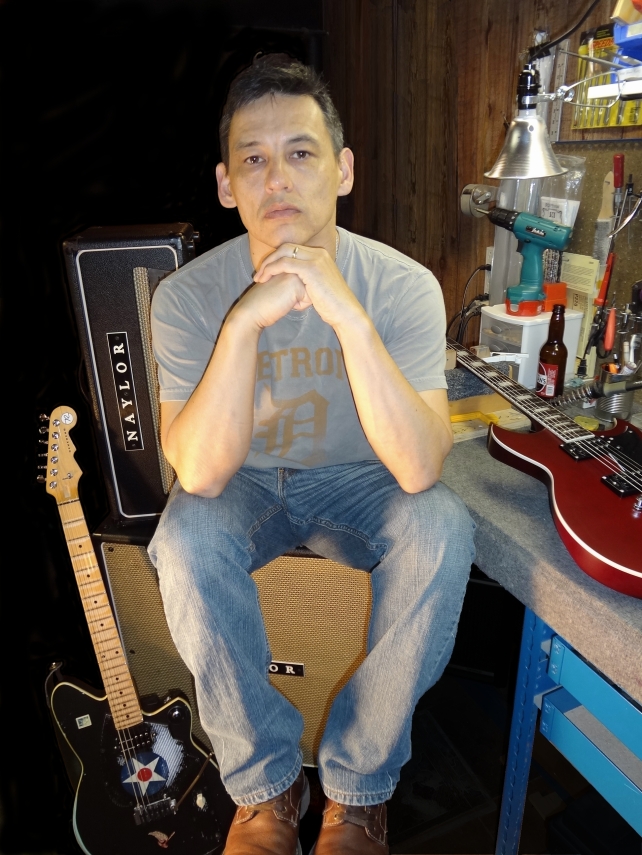
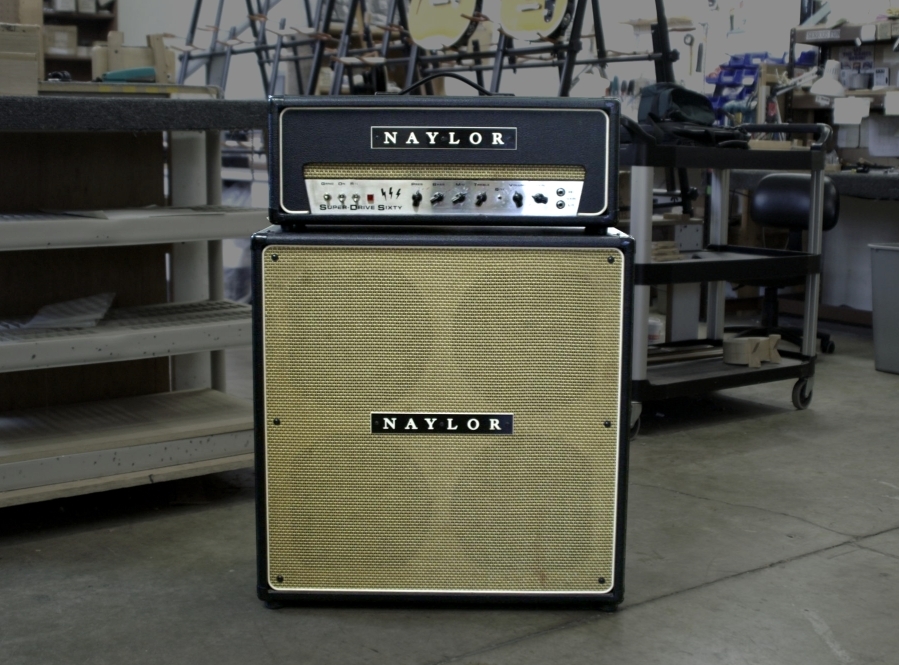
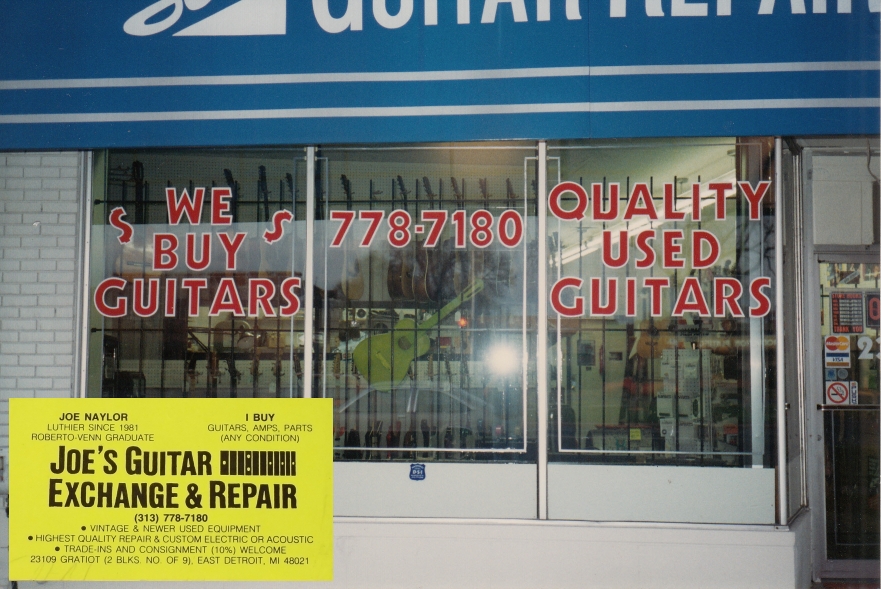
“It holds its own purely as a playable guitar. It’s really cool for the traveling musician – you can bring it on a flight and it fits beneath the seat”: Why Steve Stevens put his name to a foldable guitar
“Finely tuned instruments with effortless playability and one of the best vibratos there is”: PRS Standard 24 Satin and S2 Standard 24 Satin review









